After the success of the posts examining which battleships had the best anti-surface firepower and anti-aircraft firepower, I wanted to change things up! In this post, we will examine the guns of light cruisers, determining what was the best light cruiser gun of the Second World War.
After looking at the specification for each of the major light cruiser guns, we will then compare them together. Of course, the performance of the guns themselves are only a very small part of the ship’s overall fighting capabilities. Other factors such as fire control, training, and radar can all further change how effective the firepower was for a light cruiser. At the very least, we will at least get a feel for the basic performance of the guns themselves.
What are light cruisers?
We will only focus on light cruisers built during the Interwar Years, during the Second World War, and during the Postwar years. I use the phrase light cruisers somewhat boldly as there was no clear-cut definition of what a light cruiser truly is, only some basic guidelines. This is made even more challenging due to the fact that some navies had their own ideas on cruiser classification. Being that the article is on the firepower of light cruisers, we will focus on the cruisers armed with main guns around 6″ (152mm) in size.
Light Cruiser Gun Specifications
What follows is a brief overview of the specifications and performance figures of the various guns we will examine. We will use this information to help compile the final comparisons.
Quick Notes
In the specifications section for each gun, I use the terms Calibre and Caliber. In this regard, calibre refers to the internal diameter of the gun barrel. Caliber refers to the length of the gun barrel (breech to muzzle) divided by the calibre (diamter of the gun barrel).
Britain
BL 6inch Mk XII
Entry into Service:
- 1914
Used On:
- Emerald Class Light Cruisers (Single Mounts)
- *HMS Enterprise mounted an exerimented twin turret.
Specifications:
- Calibre: 6″ (152mm)
- Length: 7.1m (23.2′)
- Caliber: 45
- Weight: 7.7 tons (15,428lbs)
- Shell Weight:
- Armor Piercing – 45.3kg (100lbs)
- High Capacity – 50.8kg (112lbs)
- AP Bursting Charge: 3.4kg (7.5lbs)
- Maximum Gun Elevation: 40 Degrees
Performance:
- Muzzle Velocity: 853 m/s (2,800 fps)
- Range: 19,660 Meters (21,500 Yards)
- Rate of Fire: 5 Rounds Per Minute
BL 6inch Mk XXIII
Entry into Service:
- 1933
Used On:
- Leander Class Light Cruisers (Twin Turrets)
- Arethusa Class Light Cruisers (Twin Turrets)
- Town Class Light Cruisers (Triple Turrets)
- Fiji Class Light Cruisers (Triple Turrets)
- Minotaur Class Light Cruisers (Triple Turrets)
Specifications:
- Calibre: 152mm (6″)
- Length: 7.62m (25′)
- Caliber: 50
- Weight: 6.9 tons (13,800lbs)
- Shell Weight: 50.8kg (112lbs) for both Armor-Piercing and High Capacity rounds.
- AP Bursting Charge: 1.7kg (3.75lbs)
- Maximum Gun Elevation:
- Twin Turrets – 60 Degrees
- Triple Turrets – 45 Degrees
- *A later triple turret was designed for 60 degrees but was never put into service.
Performance:
- Muzzle Velocity: 841 m/s (2,758fps)
- Range: 23,300 Meters (25,480 Yards)
- Rate of Fire: 8 Rounds Per Minute
France
Canon de 155 mm Modèle 1920
Entry into Service:
- 1926
Used On:
- Duguay-Trouin Class Light Cruisers (Twin Turrets)
- Training Cruiser Jeanne d’Arc (Twin Turrets)
Specifications:
- Calibre: 155mm (6.1″)
- Length: 8m (26.25′)
- Caliber: 45
- Weight: 8.73 tons (17,460lbs)
- Shell Weight:
- Armor Piercing – 56.6kg (124.6lbs)
- High Capacity – 59kg (130lbs)
- AP Bursting Charge: 3.3kg (7.3lbs)
- Maximum Gun Elevation: 40 degrees
Performance:
- Muzzle Velocity: 870 m/s (2,854 fps)
- Range: 25,000 Meters (27,340 Yards)
- Rate of Fire: 3 Rounds Per Minute
Canon de 152 mm Modèle 1930
Entry into Service:
- 1935
Used On:
- Light Cruiser Émile Bertin (Triple Turrets)
- La Galissonnière Class Light Cruisers (Triple Turrets)
- De Grasse Class Light Cruisers (Triple Turrets) (Not completed to design)
- The De Grasse Class would have made use of an improved dual-purpose mount known as the model 1936.
Specifications:
- Calibre: 152mm (6″)
- Length: 8.86m (29′)
- Caliber: 55
- Weight: 7.65 tons (15,314lbs)
- Shell Weight:
- Armor Piercing – 57kg (125.9lbs) *This figure is for the later 1937 Shell Design, an earlier model was lighter*
- High Capacity – 49.7kg (109.6lbs)
- *During the Second World War, French cruisers utilized American 152mm rounds of which the weights differed.
- AP Bursting Charge: 1.7kg (3.8lbs)
- Maximum Gun Elevation: 30 Degrees
- Model 1936 – 75 Degrees
Performance:
- Muzzle Velocity: 870m/s (2854 fps) when firing AP
- Range: 17,647 Meters (19,300 Yards)
- 26,474 Meters (28,950 Yards) at 45 Degrees for the Model 1936
- Rate of Fire: 4 to 6 Rounds Per Minute
Germany
15cm SK L/45
Entry into Service:
- 1908
Used On:
- Cruiser Emden (Twin Turrets)
Specifications:
- Calibre: 15cm (Actually 14.91cm)
- Length: 6.71m (22′)
- Caliber: 45
- Weight: 6.3 tons (12,632lbs)
- Shell Weight: 45.3kg (99.8lbs) for both Armor Piercing and High Capacity Shells
- AP Bursting Charge: 1kg (2.2lbs)
- Maximum Gun Elevation: 27 Degrees
Performance:
- Muzzle Velocity: 835 m/s (2,740 fps)
- Range: 16,800 Meters (18,373 Yards)
- Rate of Fire: 5 Rounds Per Minute
15cm SK C/25
Entry into Service:
- 1929
Used On:
- Königsberg Class Light Cruisers (Triple Turrets)
- Leipzig Class Light Cruisers (Triple Turrets)
Specifications:
- Calibre: 15cm (Actually 14.91cm)
- Length: 9.08m (29.7′)
- Caliber: 60
- Weight: 13.1 tons (26,389lbs)
- Shell Weight:
- Armor Piercing – 45.5kg (100lbs)
- High Capacity – 45.3kg (99.8lbs)
- AP Bursting Charge: 1.3kg (2.91lbs)
- Maximum Gun Elevation: 40 Degrees
Performance:
- Muzzle Velocity: 960 m/s (3,150 fps) for AP rounds
- Range: 25,700 Meters (28,106 Yards)
- Rate of Fire: 8 Rounds Per Minute
- *Nürnberg had modified loading mechanisms and could reach 10 to 12 Rounds Per Minute
Italy
152 mm/53 Model 1926 & 1929
Entry into Service:
- 1929 – Model 1926
- 1930 – Model 1929
Used On:
- Condottieri class Light Cruisers (Twin Turrets)
- Giussano Subclass
- Cadorna Subclass
- Montecuccoli Subclass
- Duca d’Aosta Subclass
Specifications:
- Calibre: 152mm (6″)
- Length: 8.54m (28′)
- Caliber: 53
- Weight:
- Model 1926 – 7.2 tons (14,400lbs)
- Model 1929 – 7.57 tons (15,140lbs)
- Shell Weight:
- Armor Piercing – 47.5kg (104.7lbs)
- High Capacity – 44.3kg (97.7lbs)
- AP Bursting Charge: 1kg (2.2lbs)
- Maximum Gun Elevation: 45 Degrees
Performance:
- Muzzle Velocity: 850 m/s (2,789 fps)
- Range: 22,600 Meters (24,716 Yards)
- Rate of Fire:
- Model 1926 – 4 Rounds Per Minute
- Model 1929 – 8 Rounds Per Minute
152 mm/55 Model 1934
Entry into Service:
- 1940
Used On:
- Luigi di Savoia Duca degli Abruzzi
Specifications:
- Calibre: 152mm (6″)
- Length: 8.84m (29′)
- Caliber: 55
- Weight: 8.9 tons (17,800lbs)
- Shell Weight:
- Armor Piercing – 50kg (110lbs)
- High Capacity – 44.4kg (97.9lbs)
- AP Bursting Charge: 1kg (2.2lbs)
- Maximum Gun Elevation: 45 Degrees
Performance:
- Muzzle Velocity: 910 m/s (2,986fps) for AP Shells
- Range: 25,740 Meters (28,150 Yards)
- Rate of Fire: 5 Rounds Per Minute
Japan
15cm (6″)/50 41st Year Type
Entry into Service:
- 1913
Used On:
- Agano Class Light Cruisers (Twin Mounts)
Specifications:
- Calibre: 152mm (6″)
- Length: 7.87m (25.8′)
- Caliber: 50
- Weight: 9.2 tons (18,430lbs)
- Shell Weight: 45.3kg (100lbs) for both Armor Piercing and High Capacity
- AP Bursting Charge: 2.7kg (5.9lbs)
- Maximum Gun Elevation: 55 Degrees
Performance:
- Muzzle Velocity: 855 m/s (2,805 fps) for AP
- Range: 21,000 Meters (22,970 Yards) at 45 Degrees Elevation
- Rate of Fire: 6 Rounds Per Minute
14cm (5.5″)/50 3rd Year Type
Entry into Service:
- 1916
Used On:
- Tenryū Class Light Cruiser (Single Mounts)
- Kuma Class LIght Cruiser (Single Mounts)
- Nagara Class Light Cruisers (Single Mounts)
- Sendai Class Light Cruisers (Single Mounts)
- Light Cruiser Yubari (Twin and Single Mounts)
Specifications:
- Calibre: 14cm (5.5″)
- Length: 7.23m (23.7′)
- Caliber: 50
- Weight: 5.6 tons (18.7′)
- Shell Weight: 38kg (83.8lbs) for both Armor Piercing and High Capacity
- AP Bursting Charge: 2kg (4.4lbs)
- Maximum Gun Elevation:
- 20 Degrees – Tenryū Class
- 25 Degrees – Kuma & Nagara Class
- 30 Degrees – Sendai Class & Yubari
Performance:
- Muzzle Velocity: 855 m/s (2,805 fps) for AP
- Range:
- 15,800 Meters (17,280 Yards) at 20 Degrees Elevation
- 17,500 Meters (19,140 Yards) at 25 Degrees Elevation
- 19,100 Meters (20,890 Yards) at 30 Degrees Elevation
- Rate of Fire: 10 Rounds Per Minute
15.5cm (6.1″)/60 3rd Year Type
Entry into Service:
- 1935
Used On:
- Mogami Class Light Cruisers (Triple Turrets)
- Cruiser Ôyodo (Triple Turrets)
Specifications:
- Calibre: 155mm (6.1″)
- Length: 9.61m (31.5′)
- Caliber: 60
- Weight: 12.5 tons (25,000lbs)
- Shell Weight:
- Armor Piercing – 55.8kg (123.2lbs)
- High Capacity – 55.8kg (123.2lbs)
- AP Bursting Charge: 1.15kg (2.5lbs)
- Maximum Gun Elevation: 55 Degrees
Performance:
- Muzzle Velocity: 925 m/s (3,035 fps)
- Range: 27,400 Meters (29,965 Yards)
- Rate of Fire: 5 Rounds Per Minute
Soviet Union / Russia
152mm/57 B-38 Pattern 1938
Entry into Service:
- 1949
Used On:
- Chapaev Class Light Cruisers (Triple Turrets)
- Sverdlov Class Light Cruisers (Triple Turrets)
Specifications:
- Calibre: 152.4mm (6″)
- Length: 8.93m (29.2′)
- Caliber: 57
- Weight: 19.2 tons (38,581lbs)
- Shell Weight: 55kg (121lbs) for both Armor Piercing and High Capacity Shells
- AP Bursting Charge: 1.1kg (2.4lbs)
- Maximum Gun Elevation: 45 Degrees
Performance:
- Muzzle Velocity: 950m/s (3,117fps)
- Range: 28,500 Meters (31,167 Yards)
- Rate of Fire: 7 Rounds Per Minute
Spain
6″/50 Vickers-Carraca
Entry into Service:
- 1923
Used On:
- Cruiser Navarra
- Blas de Lezo Class Light Cruisers
- Almirante Cervera Class Light Cruisers
Specifications:
- Calibre: 152mm (6″)
- Length: 7.86m (25.7′)
- Caliber: 50
- Weight: 8.6 tons (17,200lbs)
- Shell Weight: 45.5kg (100lbs) for both Armor Piercing and High Capacity Shells
- AP Bursting Charge: Unknown
- Maximum Gun Elevation:
- Single Mounts – 15 Degrees
- Twin Turrets – 35 Degrees
Performance:
- Muzzle Velocity: 900 m/s (2,953fps)
- Range:
- 15 Degrees (Single Mount Maximum) – 18,290 Meters (20,000 Yards)
- 35 Degrees (Twin Mount Maximum) – 20,400 Meters (22,300 Yards)
- Rate of Fire: 6 Rounds Per Minute
United States
6″ (152mm)/53 Mark 13
Entry into Service:
- 1923
Used On:
- Omaha Class Light Cruisers (Mark 13 single mounts, Mark 16 twin mounts)
Specifications:
- Calibre: 6″ (152mm)
- Length: 26.9′ (8.2m)
- Caliber: 53
- Weight: 20,200lbs (10.1 tons)
- Shell Weight:
- 105lbs (47.6kg) for both AP and HE shells.
- AP Bursting Charge: 1.1kg (2.5lbs)
- Maximum Gun Elevation:
- Mark 16 – 30 Degrees Maximum
- Mark 13 – 20 Degrees Maximum
Performance:
- Muzzle Velocity: 3,000fps (914m)
- Range:
- 30 Degrees (Twin Mounts) – 25,300 Yards (23,130 Meters)
- 20 Degrees (Single Mounts) – 21,100 Yards (19,290 Meters)
- Rate of Fire: 7 Rounds Per Minute
6″ (152mm)/47 Mark 16
Entry into Service:
- 1937
Used On:
- Brooklyn Class Light Cruisers
- Cleveland Class Light Cruisers
Specifications:
- Calibre: 6″ (152mm)
- Length: 25′ (7.6m)
- Caliber: 47
- Weight: 13,000lbs (6.5 tons)
- Shell Weight:
- Armor Piercing – 130lbs (59kg)
- High Capacity Shell – 105lbs (47.6kg)
- AP Bursting Charge: .9kg (1.95lbs)
- Maximum Gun Elevation:
- 60 Degrees Maximum
- Originally the guns could only elevate to 40 degrees due to gunport sizes in the turrets. After being resized, a process which was completed by the end of WW2, all cruisers could elevate to a maximum of 60 Degrees.
- 60 Degrees Maximum
Performance:
- Muzzle Velocity: 2,500fps (762 m/s)
- Range: 47.5 Degrees – 26,118 Yards (23,881 Meters)
- Rate of Fire: 8 to 10 Rounds Per Minute
For more information on the Brooklyn class cruisers, you can read about them in the following article that details their development.
Overtime!
180mm/57 B-I-P Pattern 1932
Entry into Service:
- 1932
Used On:
- Cruiser Krasny Kavkaz
- Kirov Class Cruisers
Specifications:
- Calibre: 180mm (7.1″)
- Length: 10.3m (33.7′)
- Caliber: 57
- Weight: 17.1 tons (34,200lbs)
- Shell Weight: 97.5kg (215lbs) for both Armor Piercing and High Capacity Shells
- AP Bursting Charge: 1.95kg (4.3lbs)
- Maximum Gun Elevation:
- Krasny Kavkaz – 60 Degrees
- Kirov Class – 48 Degrees
- *The Kirov class cruiser Voroshilov was modified for 50 Degrees Elevation
Performance:
- Muzzle Velocity: 920m/s (3,018fps)
- Range: 37,494 Meters (41,000 Yards)
- Rate of Fire: 2 Rounds Per Minute
6″/50 QF Mark N5
Entry into Service:
- 1959
Used On:
- Neptune Class Light Cruisers (Triple Turrets – Never Entered Service)
- Minotaur Class Light Cruisers (Twin Turrets – Never Entered Service)
- Tiger Class Cruisers (Twin Turrets)
Specifications:
- Calibre: 6″ (152mm)
- Length: 10.2m (33.5′)
- Caliber: 50
- Weight: 8.8 tons (17,600lbs)
- Shell Weight:
- Armor Piercing – 58.9kg (129.75lbs)
- High Capacity – 59.9kg (132lbs)
- Bursting Charge: AP Bursting Charge: 1.7kg (3.75lbs)
- Maximum Gun Elevation: 80 Degrees (Other Sources show 78 Degrees)
Performance:
- Muzzle Velocity: 768 m/s (2,520fps)
- Range: 22,860 Meters (25,000 Yards)
- Rate of Fire: 18 to 20 Rounds Per Minute
6″/47 DP Mark 16
Entry into Service:
- 1948
Used On:
- Worcester Class Light Cruisers
Specifications:
- Calibre: 6″ (152mm)
- Length: 32′ (9.75m) Including Automatic Loading Mechanism
- Caliber: 47
- Weight: 8.8 tons (17,600lbs)
- Shell Weight:
- Armor Piercing – 130lbs (59kg)
- High Capacity – 105lbs (47.6kg)
- AP Bursting Charge: 1.95lbs (.9kg)
- Maximum Gun Elevation: 78 Degrees
Performance:
- Muzzle Velocity: 2,500 fps (762 m/s)
- Range: 26,118 Yards (23,881 Meters)
- Rate of Fire: 12 Rounds Per Minute
Best Light Cruiser Guns: Comparisons
Now that we have the specs taken care of, lets see what the best light cruiser guns where by comparing them together!
Armor Piercing Shell Weight
| Cruiser Gun | AP Shell Weight | Rank |
| American 6″ (152mm)/47 Mark 16 | 59kg (130lb) | 1 |
| French Canon de 152 mm Modèle 1930 | 57kg (125.9lbs) | 2 |
| French Canon de 155 mm Modèle 1920 | 56.6kg (124.6lbs) | 3 |
| Japanese 15.5cm (6.1″)/60 3rd Year Type | 55.8kg (123.2lbs) | 4 |
| Russian 152mm/57 B-38 Pattern 1938 | 55kg (121lbs) | 5 |
| British BL 6inch Mk XIII | 50.8kg (112lbs) | 6 |
| Italian 152 mm/55 Model 1934 | 50kg (110lbs) | 7 |
| American 6″ (152mm)/53 Mark 13 | 47.6kg (105lbs) | 8 |
| Italian 152 mm/53 Model 1926 & 1929 | 47.5kg (104.7lbs) | 9 |
| Spanish 6″/50 Vickers-Carraca | 45.5kg (100lbs) | 10 |
| Japanese 15cm (6″)/50 41st Year Type | 45.3kg (100lbs) | 10 |
| German 15cm SK C/25 | 45.5kg (100lbs) | 10 |
| British BL 6inch Mk XII | 45.3kg (100lbs) | 10 |
| German 15cm SK L/45 | 45.3kg (99.8lbs) | 11 |
| Japanese 14cm (5.5″)/50 3rd Year Type | 38kg (83.8lbs) | 12 |
Bursting Charge of Armor Piercing Shell
| Cruiser Gun | Bursting Charge | Rank |
| British BL 6inch Mk XII | 3.4kg (7.5lbs) * | |
| French Canon de 155 mm Modèle 1920 | 3.3kg (7.3lbs) * | |
| Japanese 14cm (5.5″)/50 3rd Year Type | 2.7kg (5.9lbs)* | |
| Japanese 15cm (6″)/50 41st Year Type | 2kg (4.4lbs)* | |
| French Canon de 152 mm Modèle 1930 | 1.7kg (3.8lbs) | 1 |
| British BL 6inch Mk XXIII | 1.7kg (3.8lbs) | 1 |
| German 15cm 15cm SK C/25 | 1.3kg (2.91lbs) | 2 |
| Japanese 15.5cm (6.1″)/60 3rd Year Type | 1.15kg (2.5lbs) | 3 |
| American 6″/53 Mark 13 | 1.1kg (2.5lbs) | 4 |
| Russian 152mm/57 B-38 Pattern 1938 | 1.1kg (2.4lbs) | 5 |
| German 15cm SK L/45 | 1kg (2.2lbs) | 6 |
| Italian 152 mm/53 Model 1926 & 1929 | 1kg (2.2lbs) | 6 |
| Italian 152 mm/55 Model 1934 | 1kg (2.2lbs) | 6 |
| American 6″/47 Mark 16 | .9kg (1.95lbs) | 7 |
Rate of Fire
| Cruiser Gun | Rate of Fire (RPM) | Rank |
| American 6″ (152mm)/47 Mark 16 | 10 Rounds Per Minute | 1 |
| German 15cm SK C/25 | 10 Rounds Per Minute | 1 |
| Japanese 14cm (5.5″)/50 3rd Year Type | 10 Rounds Per Minute | 1 |
| Italian 152 mm/53 Model 1926 & 1929 | 8 Rounds Per Minute | 2 |
| British BL 6inch Mk XIII | 8 Rounds Per Minute | 2 |
| Russian 152mm/57 B-38 Pattern 1938 | 7 Rounds Per Minute | 3 |
| American 6″ (152mm)/53 Mark 13 | 7 Rounds Per Minute | 3 |
| French Canon de 152 mm Modèle 1930 | 6 Rounds Per Minute | 4 |
| Japanese 15cm (6″)/50 41st Year Type | 6 Rounds Per Minute | 4 |
| Spanish 6″/50 Vickers-Carraca | 6 Rounds Per Minute | 4 |
| Italian 152 mm/55 Model 1934 | 5 Rounds Per Minute | 5 |
| Japanese 15.5cm (6.1″)/60 3rd Year Type | 5 Rounds Per Minute | 5 |
| German 15cm SK L/45 | 5 Rounds Per Minute | 5 |
| British BL 6inch Mk XII | 5 Rounds Per Minute | 5 |
| French Canon de 155 mm Modèle 1920 | 3 Rounds Per Minute | 6 |
Maximum Range
| Cruiser Gun | Range | Rank |
| Russian 152mm/57 B-38 Pattern 1938 | 28,500 Meters (31,167 Yards) | 1 |
| Japanese 15.5cm (6.1″)/60 3rd Year Type | 27,400 Meters (29,965 Yards) | 2 |
| French Canon de 152 mm Modèle 1930 | 26,474 Meters (28,950 Yards) | 3 |
| Italian 152 mm/55 Model 1934 | 25,740 Meters (28,150 Yards) | 4 |
| German 15cm SK C/25 | 25,700 Meters (28,106 Yards) | 5 |
| French Canon de 155 mm Modèle 1920 | 25,000 Meters (27,340 Yards) | 6 |
| American 6″ (152mm)/47 Mark 16 | 26,118 Yards (23,881 Meters) | 7 |
| British BL 6inch Mk XIII | 23,300 Meters (25,480 Yards) | 8 |
| American 6″ (152mm)/53 Mark 13 | 25,300 Yards (23,130 Meters) | 9 |
| Italian 152 mm/53 Model 1926 & 1929 | 22,600 Meters (24,716 Yards) | 10 |
| Japanese 15cm (6″)/50 41st Year Type | 21,000 Meters (22,970 Yards) | 11 |
| Spanish 6″/50 Vickers-Carraca | 20,400 Meters (22,300 Yards) | 12 |
| British BL 6inch Mk XII | 19,660 Meters (21,500 Yards) | 13 |
| Japanese 14cm (5.5″)/50 3rd Year Type | 19,100 Meters (20,890 Yards) | 14 |
| German 15cm SK L/45 | 16,800 Meters (18,373 Yards) | 15 |
Overall Ranks
| Light Cruiser Guns | Composite Score (Lower is Better) | Composite Rank |
| French Canon de 152 mm Modèle 1930 | 10 | 1 |
| Russian 152mm/57 B-38 Pattern 1938 | 14 | 2 |
| Japanese 15.5cm (6.1″)/60 3rd Year Type | 14 | 2 |
| American 6″ (152mm)/47 Mark 16 | 16 | 3 |
| British BL 6inch Mk XIII | 17 | 4 |
| German 15cm SK C/25 | 18 | 5 |
| Italian 152 mm/55 Model 1934 | 22 | 6 |
| American 6″ (152mm)/53 Mark 13 | 24 | 7 |
| Italian 152 mm/53 Model 1926 & 1929 | 27 | 8 |
| German 15cm SK L/45 | 30 | 9 |
| British BL 6inch Mk XII | * (Missing Data) | * (Missing Data) |
| Spanish 6″/50 Vickers-Carraca | * (Missing Data) | * (Missing Data) |
| French Canon de 155 mm Modèle 1920 | * (Missing Data) | * (Missing Data) |
| Japanese 15cm (6″)/50 41st Year Type | * (Missing Data) | * (Missing Data) |
| Japanese 14cm (5.5″)/50 3rd Year Type | * (Missing Data) | * (Missing Data) |
Best Light Cruiser Guns: Final Thoughts
The data is compiled and the tables have been made! So what was the best light cruiser gun?
Well, first and foremost, it is important to remember that these tables are a general guideline. There are a lot of additional factors that are not easily compared to one another much less ranked. Accuracy, fire-control, shell design. All can influence the performance of each light cruiser gun even further. So even with the tables, we have come up with, they are not the end-all, be-all of light cruiser gun rankings.
With that being said though, from a performance standpoint, we have seen some strong contenders. The French Canon de 152 mm Modèle 1930 offers very strong performance, ranking near the top in many of the performance specifications. Even more surprisingly, the Japanese 15.5cm (6.1″)/60 3rd Year Type and Russian 152mm/57 B-38 Pattern 1938 are very highly ranked. All three either ranked at the top or just under it in each performance ranking. Excellent performance by three relatively unknown guns.
The final point to make focuses on the other modern light cruisers guns of other nations. Though they did not make the top three, they were all just behind the leaders by only a few points. Most even ranked at the top of particular performance specifications. The only reason they seemed to have fallen behind is that they did not enjoy the same blend of performance as the top three weapons.
Overall, this would suggest that all of the modern weapons were still viable. They could threaten any opposing light cruiser they would happen upon and many heavy cruisers for that matter.
Further Links of Interest:
Liked This piece on the Brooklyn Class? Check out some Other Links
Want to follow Navy General Board on Social Media? Check us out on the platforms below!
- YouTube
- Want to help the site continue to expand? Support us on Patreon.
- Learn more about how NGB got started!
Some more great articles:
How Britain gained two new battleships from the Washington conference of 1921-22
The story behind ‘The battlecruiser HMS New Zealand: a gift to The Empire’
Super Battleships of the World
Largest Aircraft Carriers of World War 2
How some key naval engineering terms migrated into English
Sources:
U.S. Cruisers: An Illustrated Design History by Norman Friedman
British Cruisers: Two World Wars and After by Norman Friedman
Naval Weapons of World War Two by NHJ Campbell
NavWeaps (NavWeaps | Naval Weapons, Naval Technology and Naval Reunions)

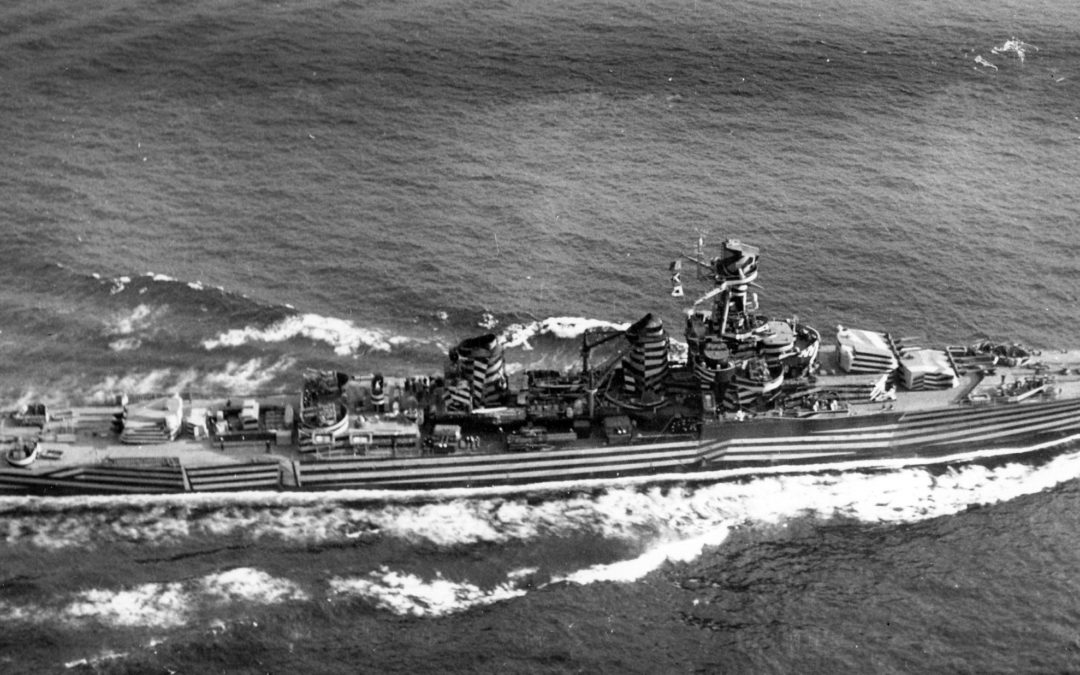
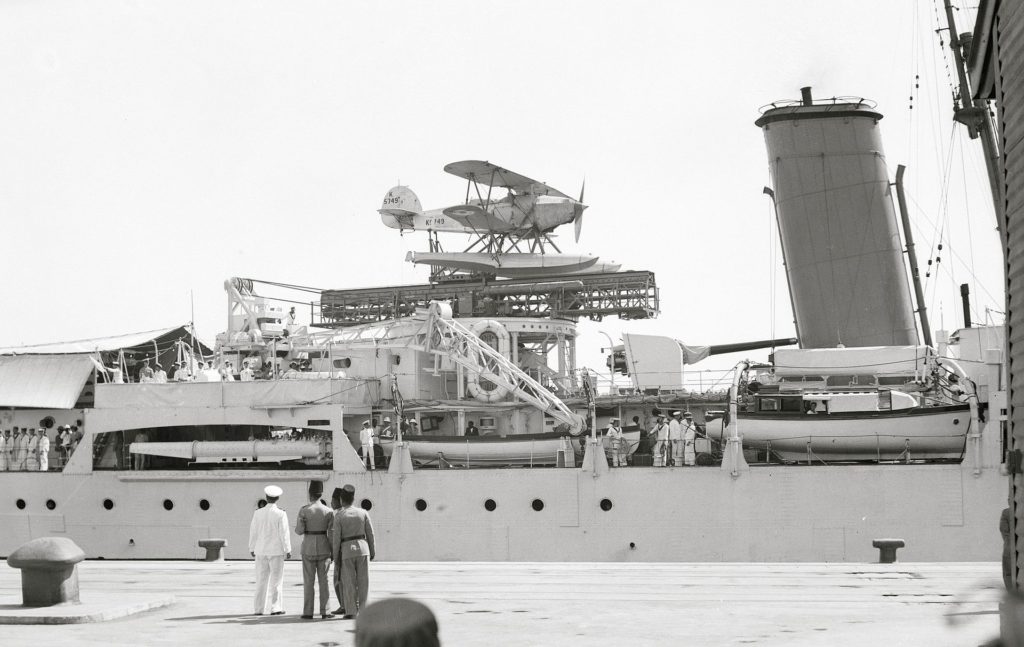
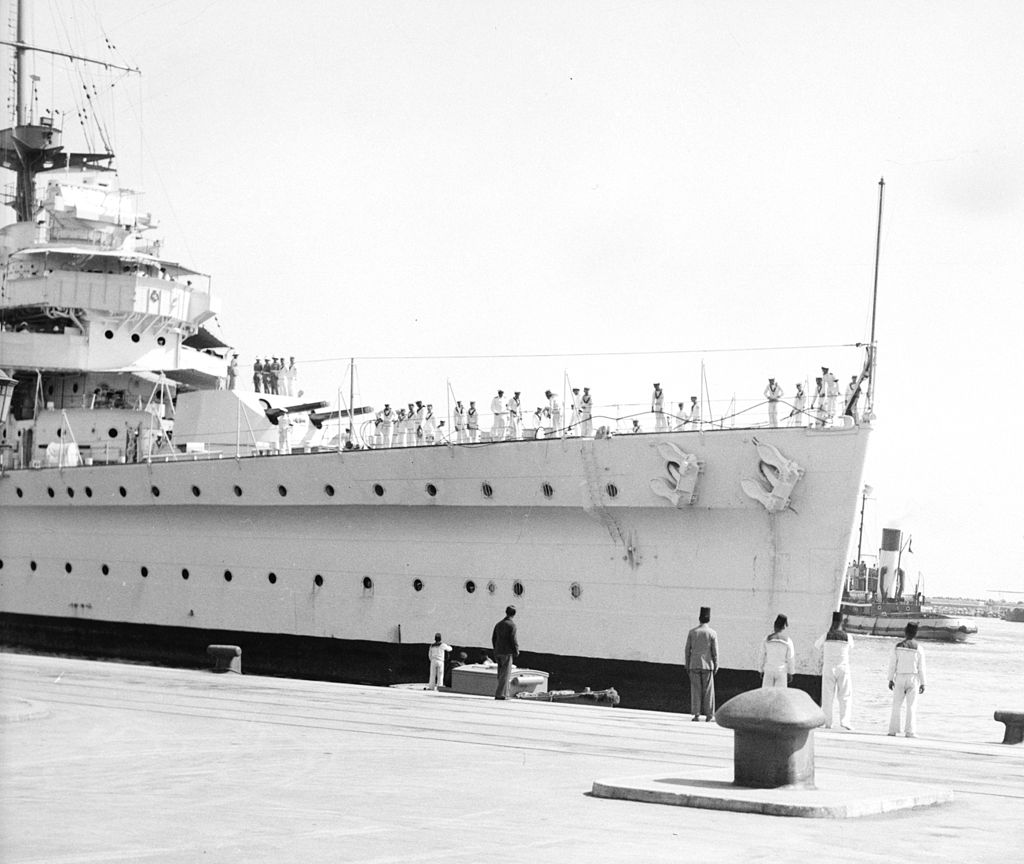
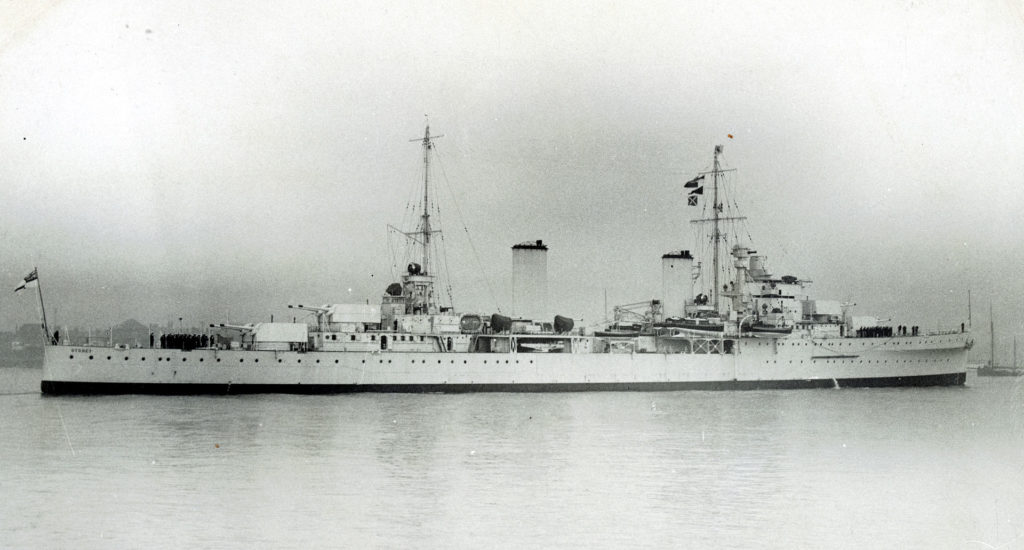
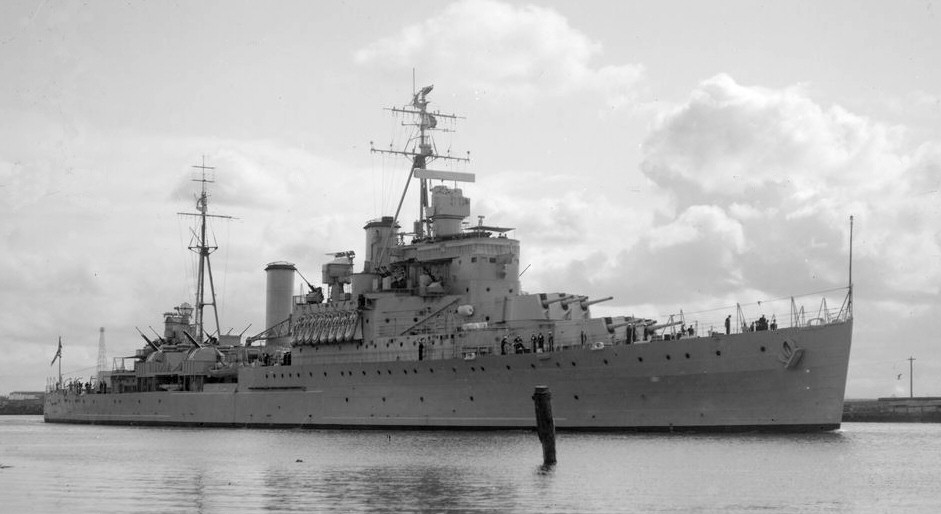
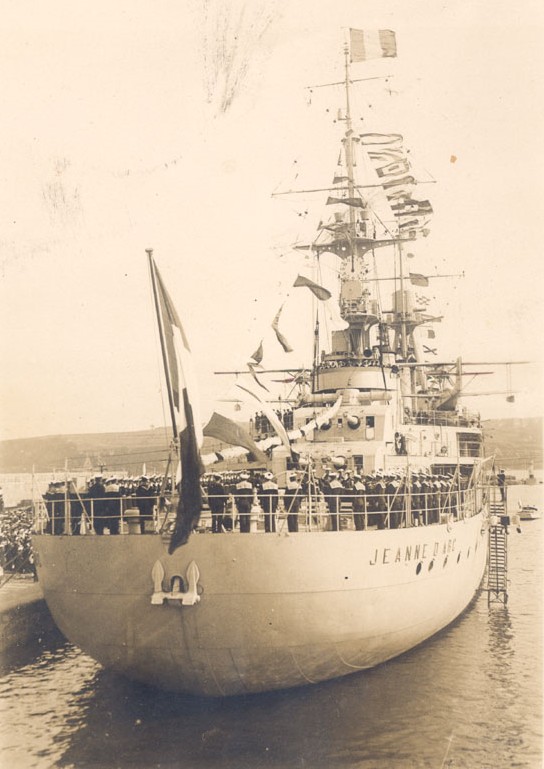
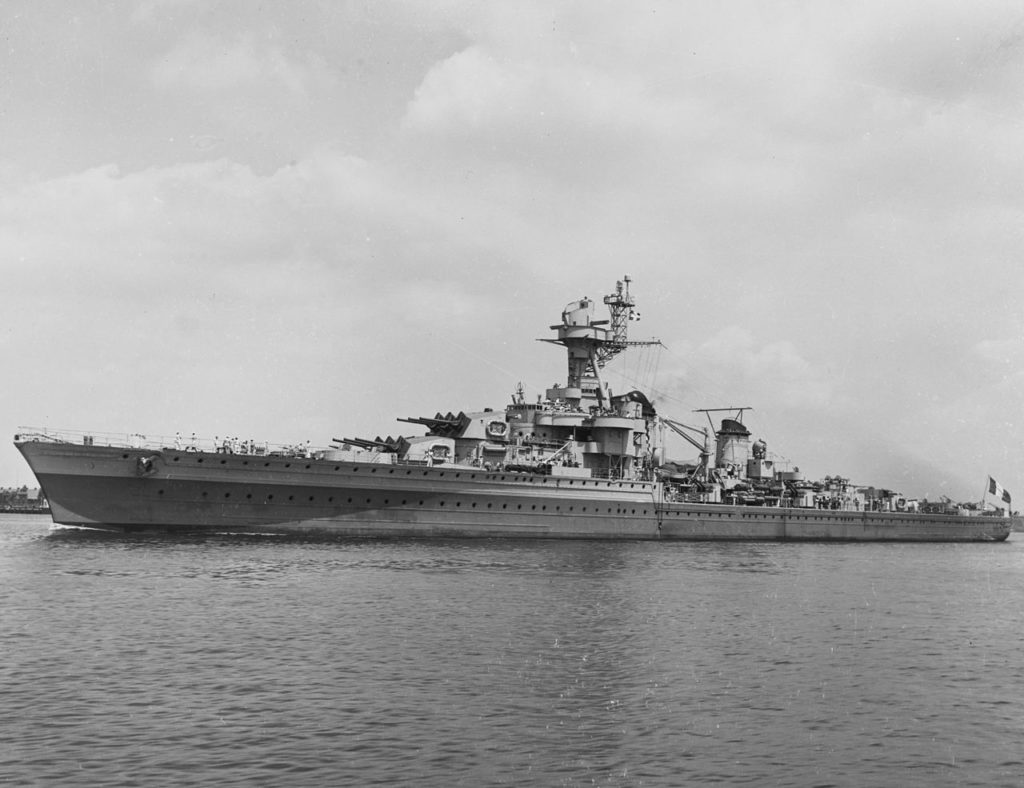
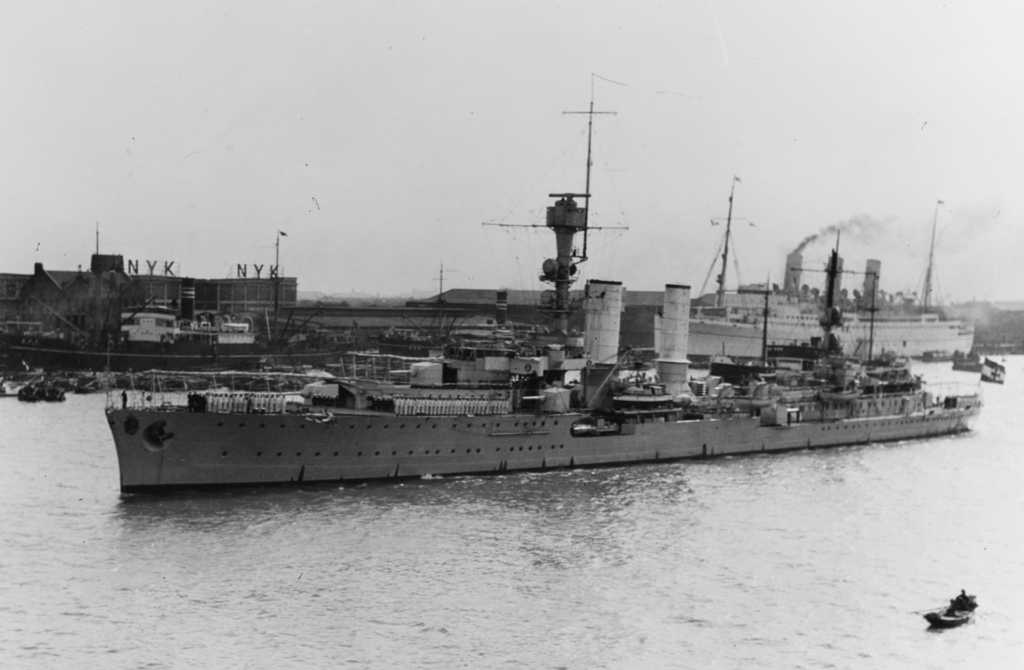
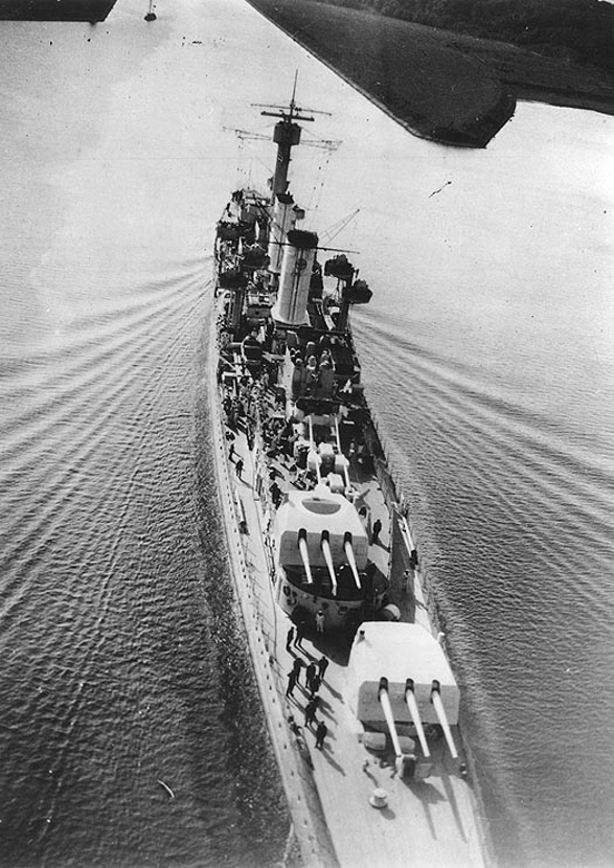
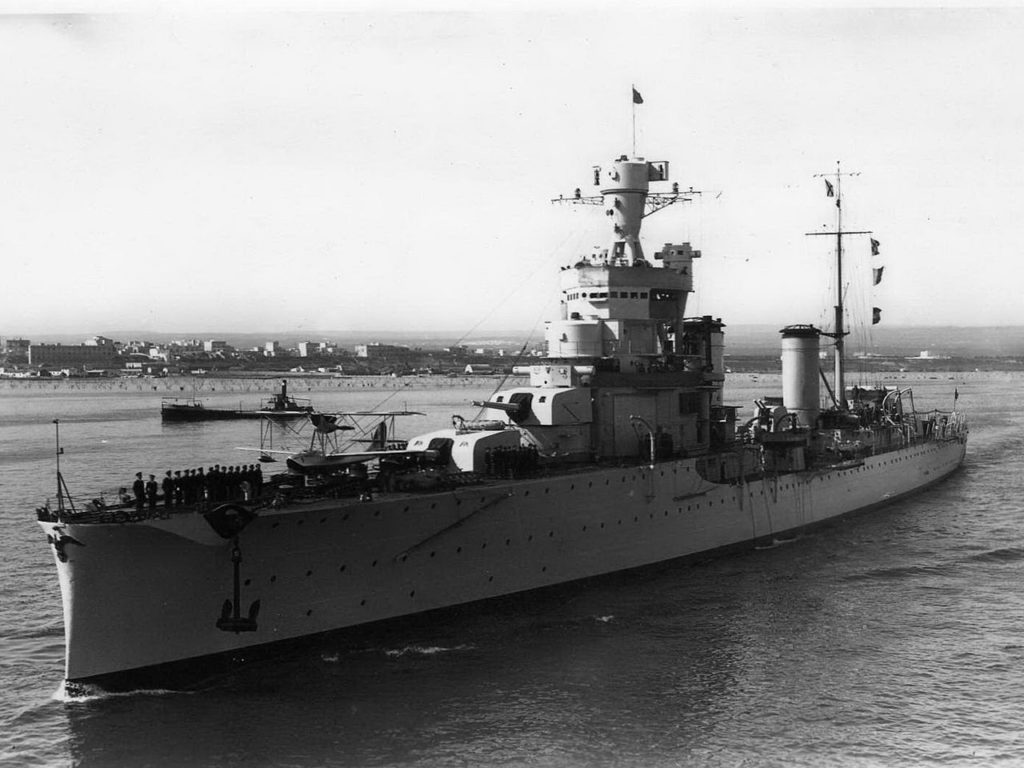
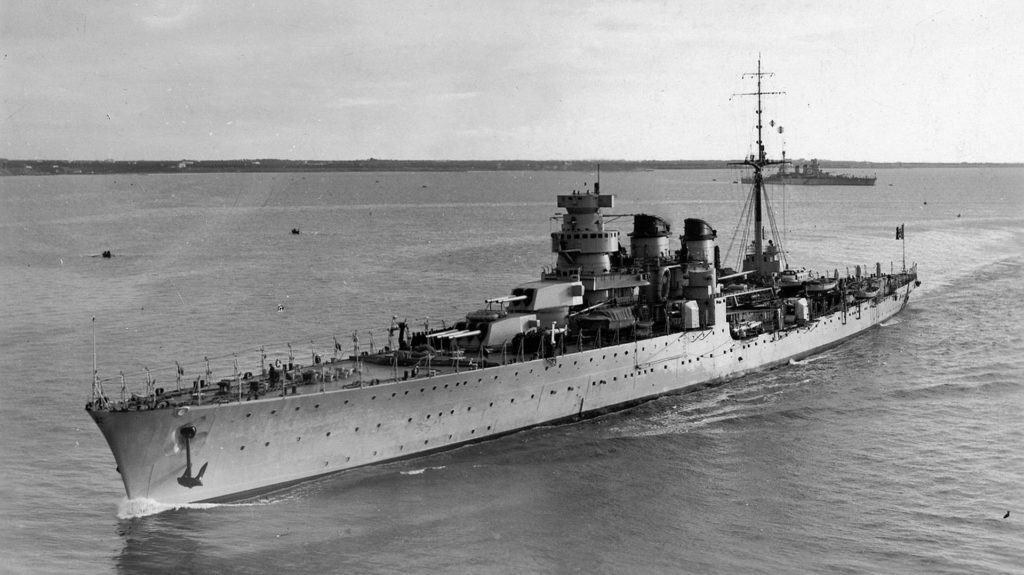
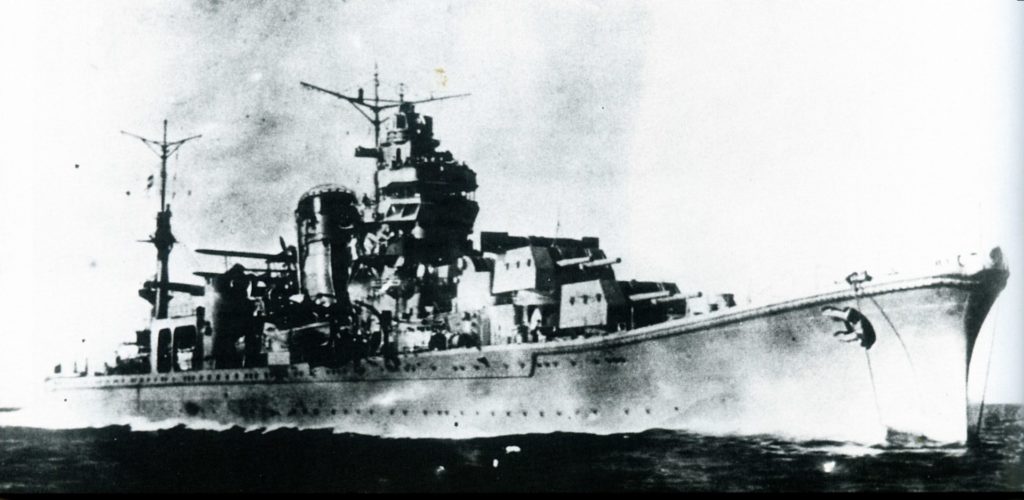
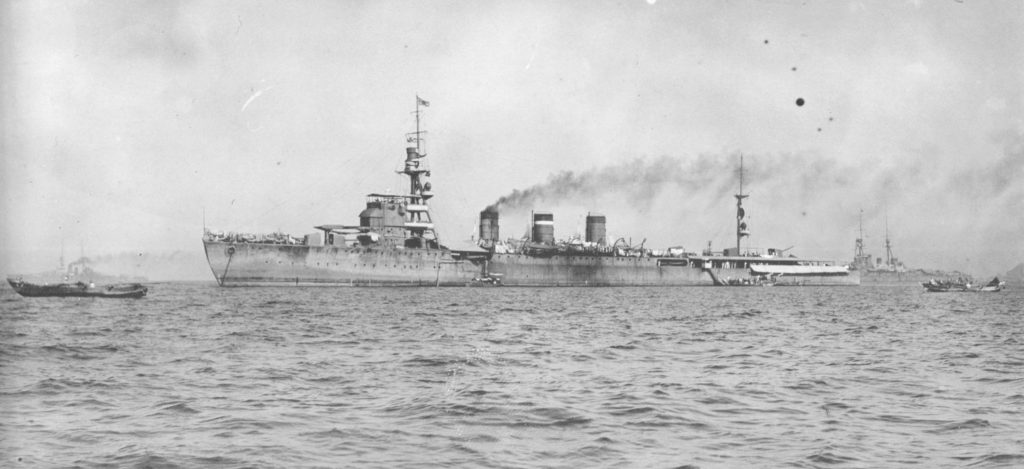
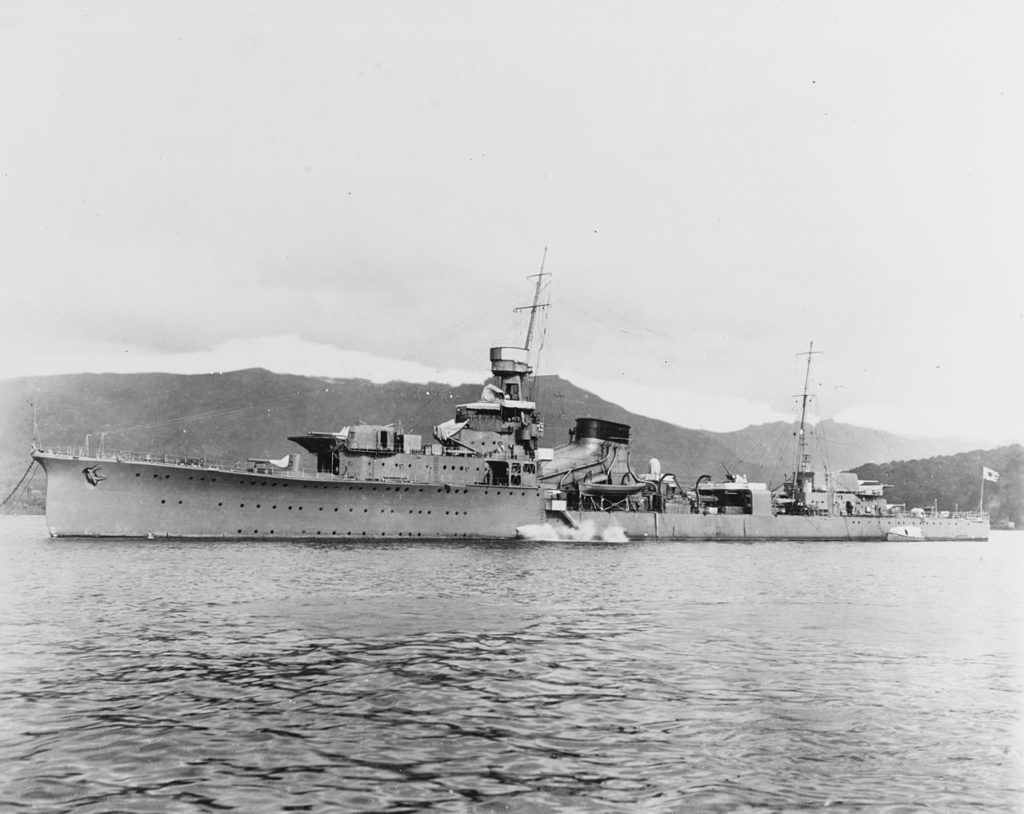
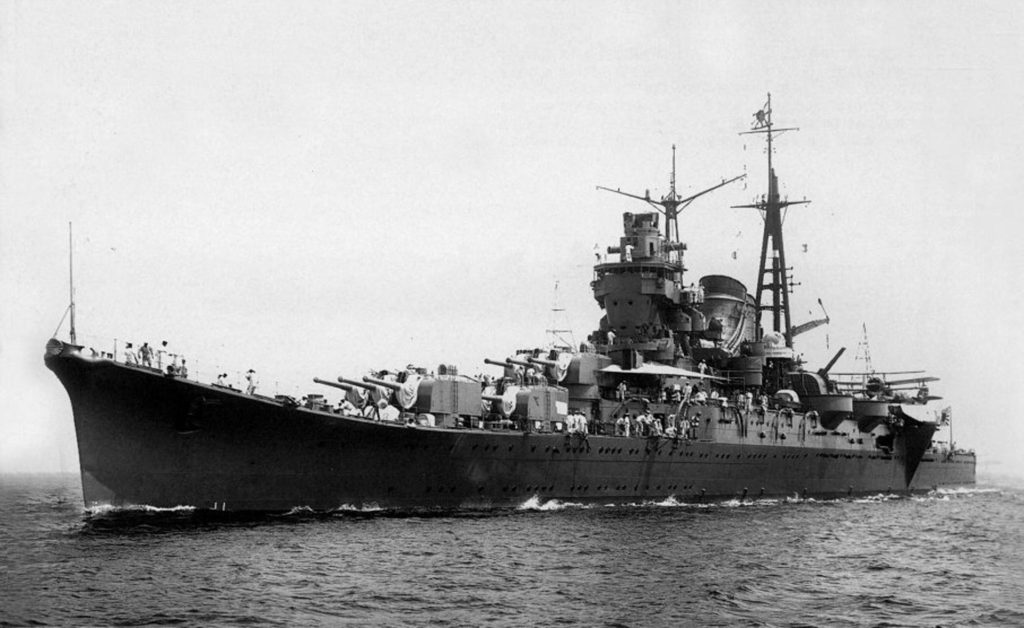
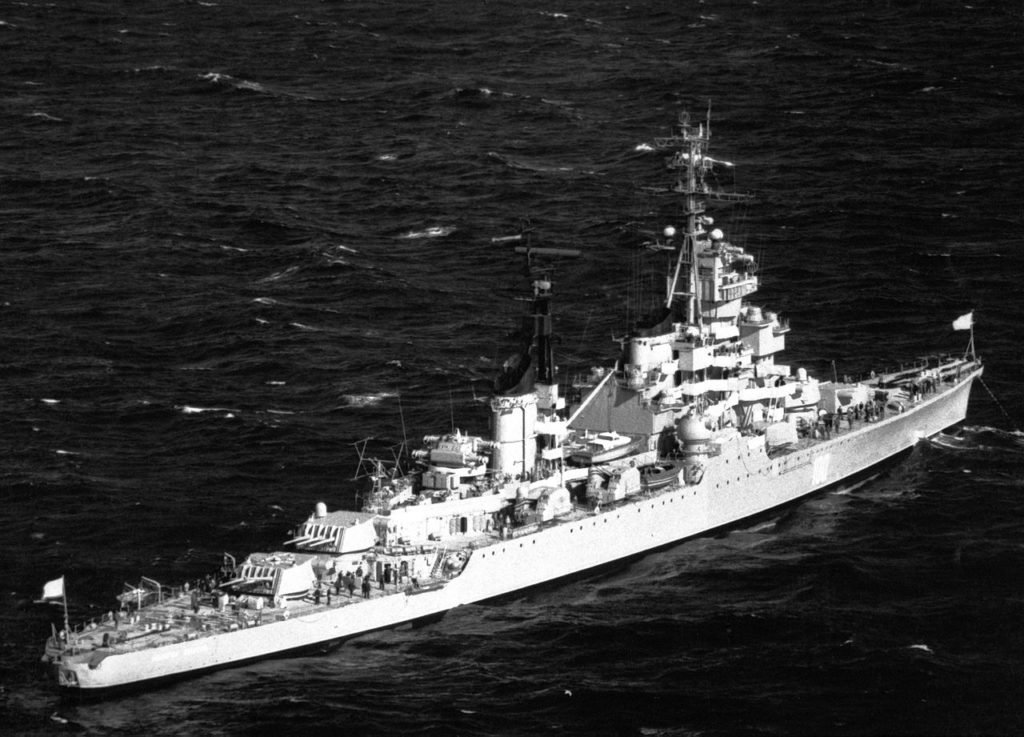
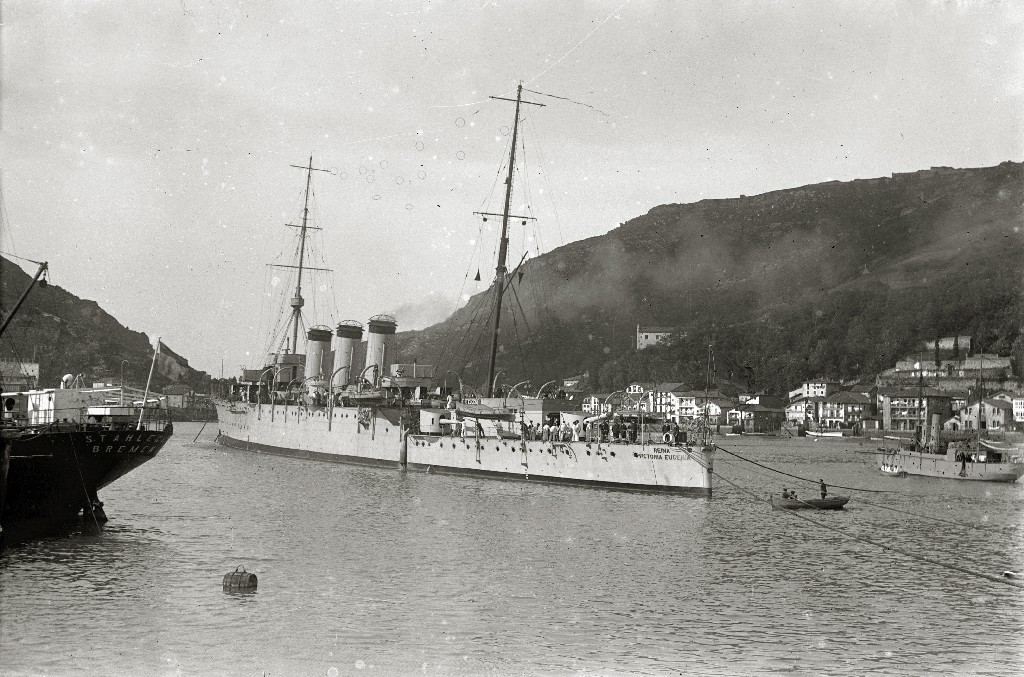
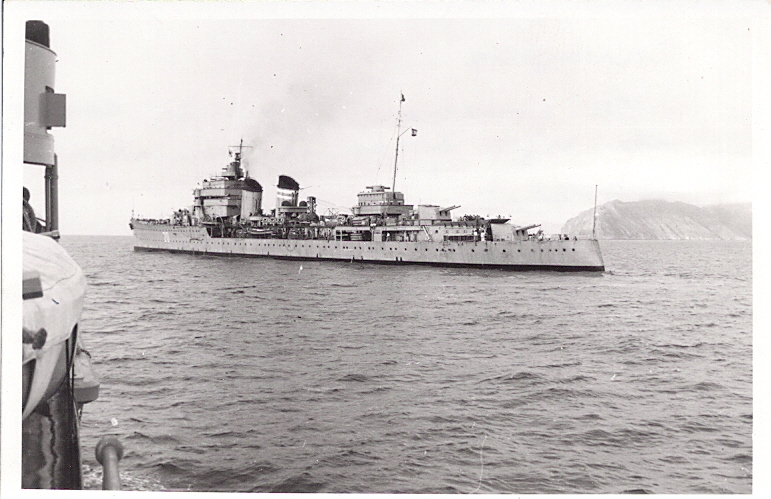
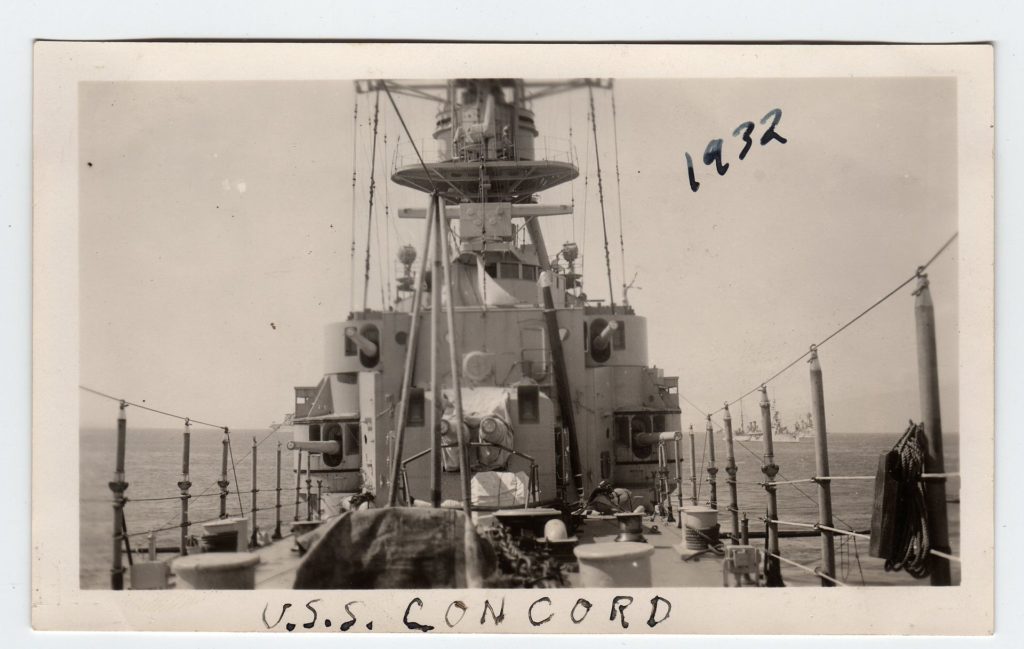
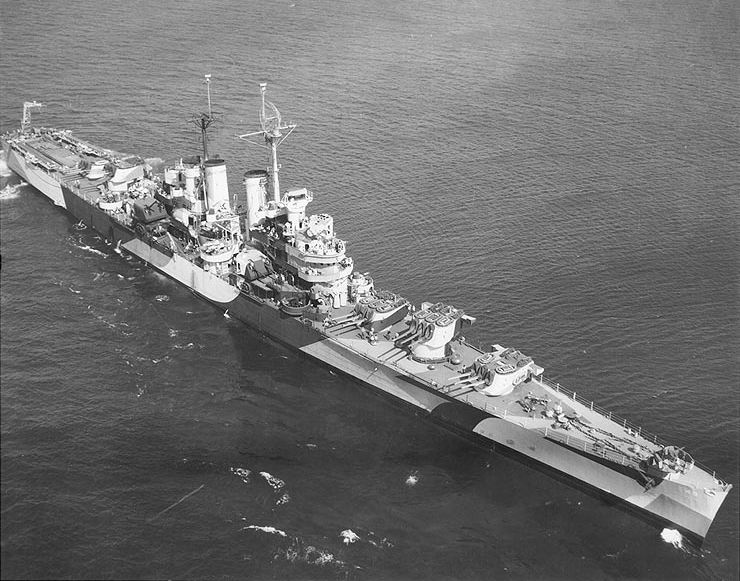
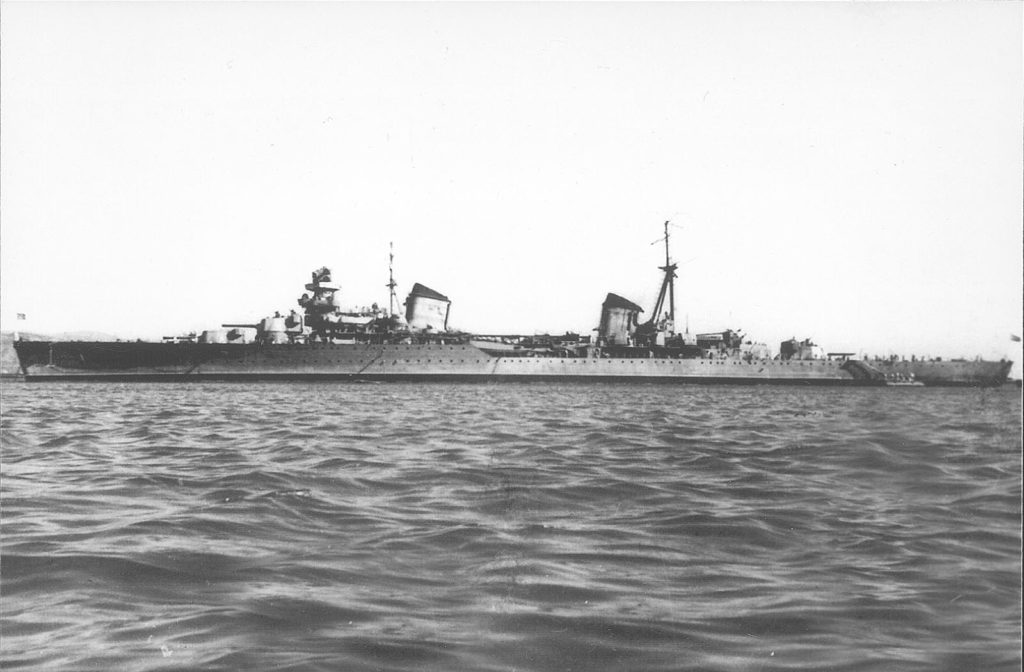
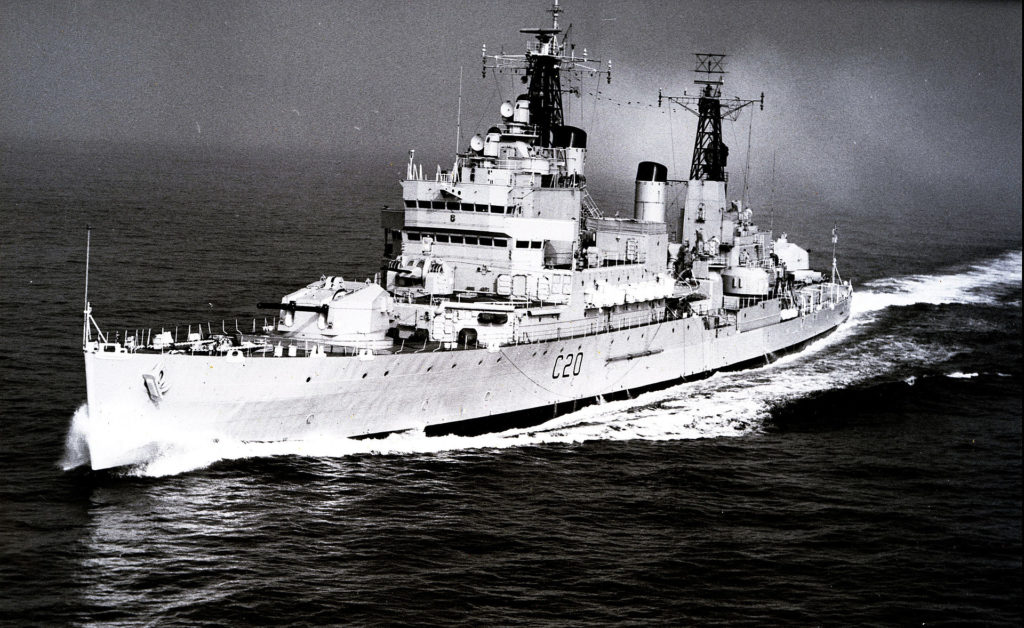
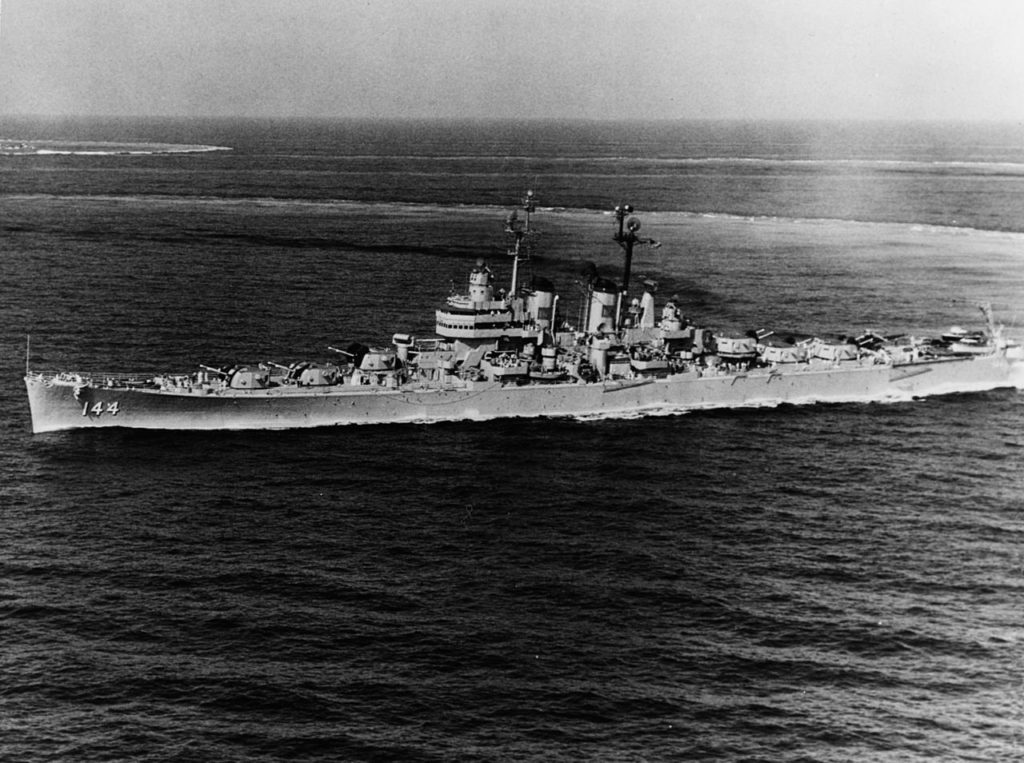
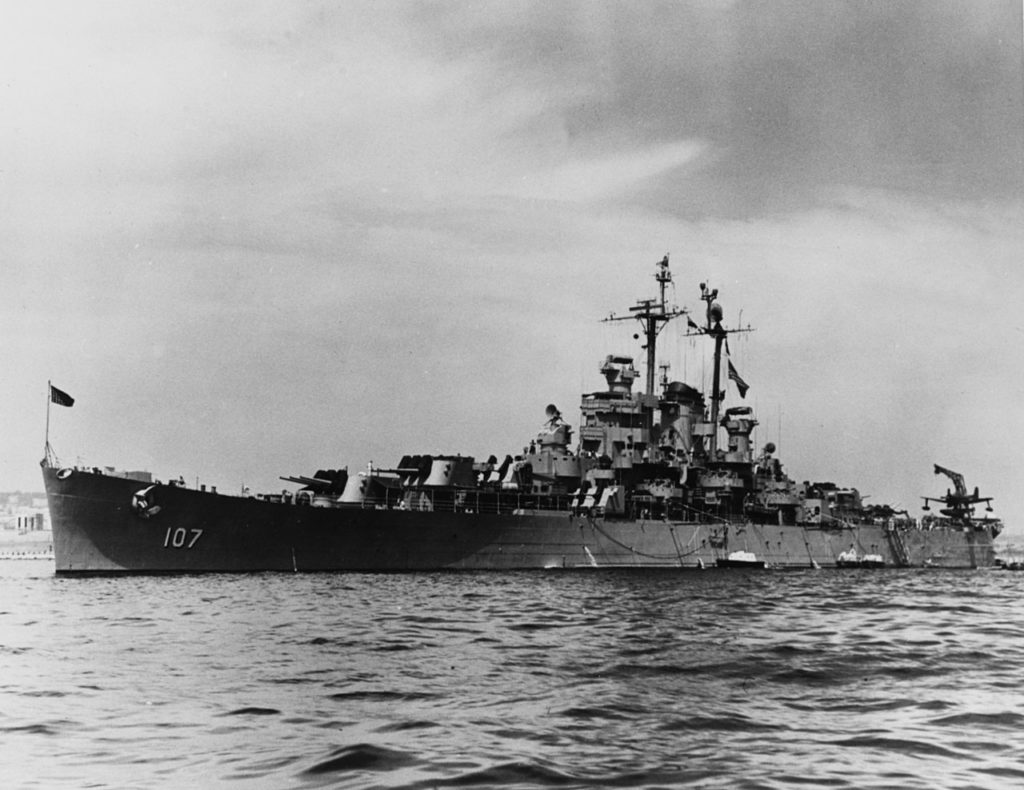

Recent Comments